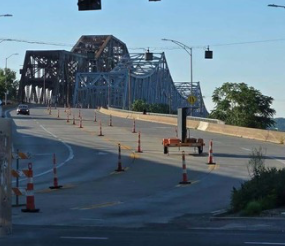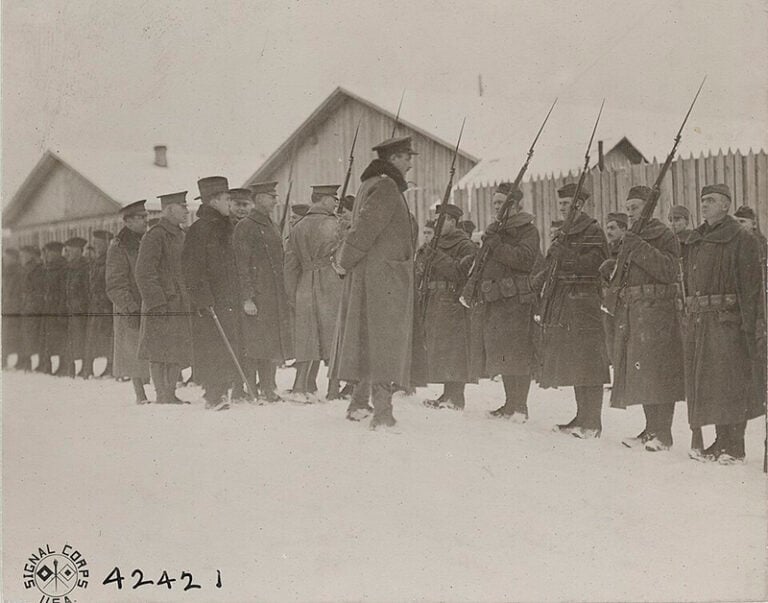By Steve Flairty
NKyTribune columnist
Back when I was an elementary student, I was taught that Robert Fulton was the inventor of the steamboat, pure and simple. Likely most students across our country were given the same information. Kentucky even named one of its 120 counties after the man. But maybe another person should have received more of the credit. Likely the people around the town of Bardstown think so.

Called by one source a “jack-of-all-trades,” John Fitch was actually the inventor of America’s first steamboat. But to get to that point, it might prove helpful to check out his background. He was born in the British colony of Connecticut in 1743. He grew up to do farmwork, clockmaking, silversmithing, land speculation, mapmaking, and he fought for the Continental Army in the Revolutionary War. As a precursor to his interest in the navigation of rivers in America’s West, he later explored the Ohio River valley region and was captured by Native Americans, though he survived the ordeal after being turned over to the British.
In 1780, Fitch came to Kentucky and, working as a surveyor, acquired three large parcels of land in what is now Nelson County. But back on the East Coast, his attention was on constructing boat models propelled by steam. He successfully demonstrated a model on the Delaware River, and in 1785, he petitioned the U.S. Congress for development funds for his invention but was turned down. He acquired some financing privately, however. He also gained from some state legislatures exclusive rights to navigate some particular rivers with boats powered by steam.
Things seemed to be going his way when several of his boats operated commercially—mostly as leisure, or novelty, enjoyment for the passengers–on the Delaware River from 1787 to 1790. However, though Fitch received a patent in 1791 from Congress, it did not grant him further funds to support his invention.

He became despondent over his rejection and returned to the Bardstown area in Kentucky, hoping to start a company to build boats. Arriving there, he found the discouraging situation of people challenging his land claims. He successfully defended his claims, but his disappointments regarding his steamboat invention drove him to drinking and depression, and he died at Bardstown in 1798. Reports say that he suffered from an opium overdose combined with whiskey.
“John Fitch was a man ahead of his time… born twenty years too early,” said local Bardstown historian Dixie Hibbs, who also served as the town’s only female mayor back in 2003-2007. She noted that prior to the opening up of the West during those times, people didn’t see the economic importance of a steam-powered boat on their rivers.
Looking back, the steamboats of inventors Robert Livingston and Robert Fulton, two who worked together after Fitch’s invention came on the scene, were later found to be very similar to Fitch’s. In fact, while in New York City, Fitch had shown some model drawings to show Fulton. History books, at least comparing him to other inventors and engineers, have been a bit light on Fitch. Perhaps he needed a good public relations person. For sure, he needed more funding to get his work presented more aggressively to the public. That said, there were a few schools named after him in Connecticut, along with a few small memorials. Levittown, Pennsylvania, has John Fitch Elementary School. And in America’s capitol building, a painting done in 1876 shows Fitch working on one of his steamboat models.

Fulton’s steamboat, the Clermont, had its maiden voyage on the Hudson River in 1807. To Fulton’s credit, according to thoughtco.com, he also is cited for inventing the Nautilus, one of the world’s first practical submarines. Fitch’s steamboats–one which later burned—were navigating on the Delaware River twenty years earlier.
My wife and I recently visited Bardstown to get a sense of how the town regards Fitch. We drove onto John Fitch Avenue and saw the Pioneer Cemetery where Fitch was originally buried. Next to the cemetery is a roadside marker created in tribute. It’s a well-kept monument and the street has many older well-kept and picturesque residences.
In 1927, Bardstown resident Mrs. Ben Johnson, whose husband was a long-time congressman, persuaded Congress to appropriate $15,000 to erect a monument to John Fitch on the town’s Court Square. His remains were moved from the Pioneer Cemetery to the Square. It is said that a thousand people attended the unveiling of the Fitch Memorial.
But why was John Fitch not given more credit for his part in the development of the steamboat?
“In time, Fitch’s patent had run out and he was in the middle of nowhere (frontier Bardstown),” offered Dixie.
He had even sought funding in France and England. There were probably not enough Mrs. Ben Johnsons around during Fitch’s life, and “the way you got the word out mostly was through letters and word of mouth,” Dixie continued.
I doubt if Kentucky’s Fulton County will ever change its name to Fitch County. And I figure that future history books will talk in glowing terms mostly about how Robert Fulton is the reason that steamboats exist. But every time folks in Bardstown drive down John Fitch Avenue or pass by Fitch’s gravestone at Court Square, it will register that he was a pretty special man, too, and for some, one who did Mr. Fulton a big favor.
God rest Mr. Fitch’s soul, and may Kentuckians never forget him.

















